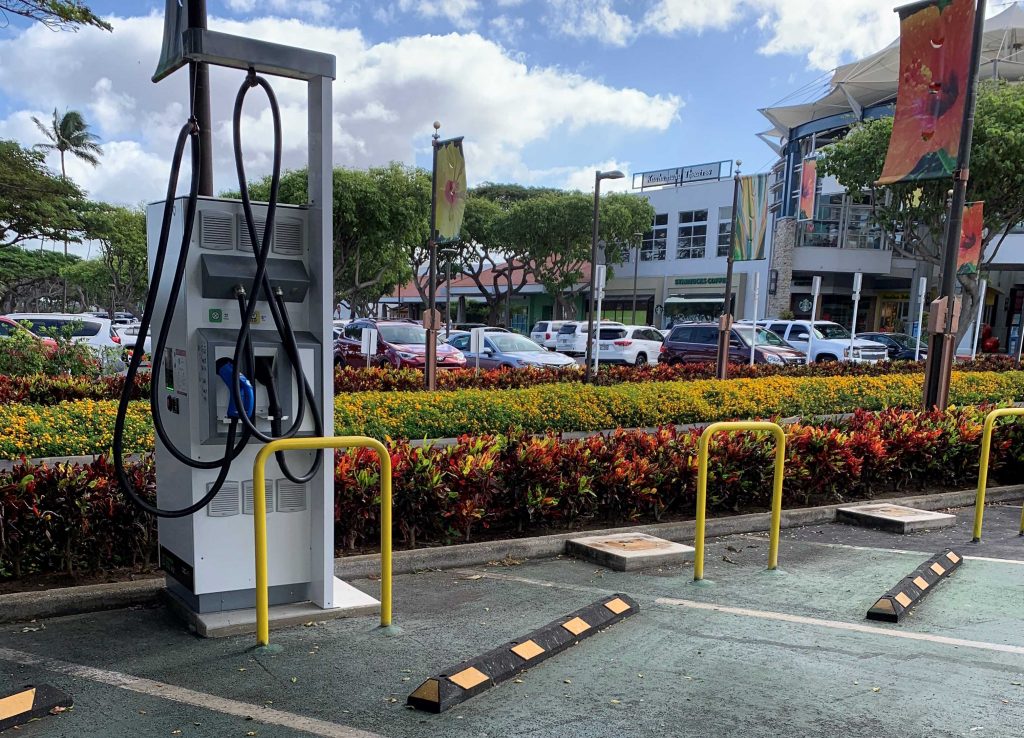New federal infrastructure law provides clean energy opportunities for Hawaiʻi

With the Bipartisan Infrastructure Investment and Jobs Act passed into law, Hawaiʻi Energy has identified specific clean energy opportunities for the state and local businesses.
The legislation provides $1 trillion in funding to be shared between states and local governments throughout the United States to support infrastructure improvements, including clean energy and transportation.
“In our role administering clean energy programs in the islands, we’ve taken the time to analyze what the legislation means for Hawaiʻi and how our local businesses and non-profits could benefit,” said Brian Kealoha, Executive Director of Hawaiʻi Energy.
A portion of the $1 trillion federal funding will go directly to state and government agencies through formula funding, while the remainder will be made available through competitive grants.
Specific Hawaiʻi allocations have yet to be identified, although Hawaiʻi is estimated to receive at least $2.8 billion over the next five years, with approximately $1.5 billion slated for a variety of transportation projects. About $18 million of that funding will support the expansion on an electric vehicle charging network in the state.
The following are the opportunities available for clean energy-related measures and improvements, according to Hawai’i Energy. The amounts below reflect the legislation’s funding for each program.
Formula Funding:
- Electric Vehicle Formula Program ($5 billion): Deploy EV charging infrastructure and establish an interconnected network to facilitate data collection, access, and reliability.
- Carbon Reduction Program ($6.4 billion): A new Department of Transportation program established to invest in projects that support a reduction in transportation emissions.
- Energy Efficiency Revolving Loan Fund Grant Program ($250 million): Revolving loan funds to assist residential and commercial building owners with conducting energy audits and making energy efficiency upgrades to their homes and facilities.
- Energy Efficiency and Conservation Block Grant Program ($550 million): Reduce fossil fuel emissions and total energy use, and create jobs to implement and manage energy efficiency and conservation projects and programs.
- Weatherization Assistance Program ($3.5 billion): Enables low-income families to reduce their energy consumption by making their dwellings more energy efficient.
Competitive Grants:
- Cost-Effective Codes Implementation for Efficiency and Resilience ($225 million): Grants to enable cost-effective implementation of updated building energy codes.
- Building, Training and Assessment Centers ($10 million): Grants to institutions of higher education to establish building training and assessment centers to educate and train building technicians and engineers on implementing modern building technologies.
- Career Skills Training ($10 million): Grants to pay the federal share of associated career skills training programs under which students concurrently receive classroom instruction and on-the-job training for the purpose of obtaining an industry-related certification to install energy efficient buildings technologies.
- Grants for Energy Efficiency Improvements and Renewable Energy Improvements at Public School Facilities ($500 million): Grants to make energy efficiency, renewable energy and alternative fueled vehicle upgrades and improvements at public schools.
- Energy Efficiency Materials Pilot Program ($50 million): Grants to provide nonprofit buildings with materials to improve their energy efficiency.
- WaterSMART Water and Energy Efficiency Grants ($400 million): Grants for projects to improve water and energy efficiency, including a $100M set aside for natural infrastructure projects.
- Energy Auditor Training Grant Program ($40 million): Grants to train individuals to conduct energy audits or surveys of commercial and residential buildings.
- Solar Energy Demonstration Projects ($80 million): Funding to demonstrate solar energy technologies.
- Wind Energy Demonstration Projects ($100 million): Funding to demonstrate wind energy technologies.
“As we track the progress of the Infrastructure bill, we are available to support local businesses and non-profits for grant applications and funding distribution planning,” said Kealoha of Hawai’i Energy. “We are also tracking the progress of the Build Back Better Bill, which includes energy efficiency-related funding opportunities.”
To get the latest on federal funding opportunities from the Infrastructure Investment and Jobs Act and the Build Back Better Bill, please visit https://hawaiienergy.com/federal-funding and subscribe to receive Hawai‘i Energy’s newsletter.










